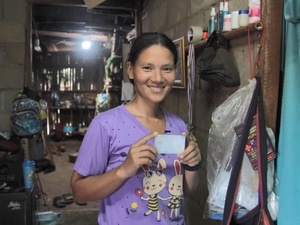UNHCR lauds Philippines’ accession to 1961 statelessness convention
UNHCR lauds Philippines’ accession to 1961 statelessness convention

In a historic move, the Philippines has taken a major step towards eradicating statelessness in the country by acceding to the 1961 Convention on the Reduction of Statelessness, becoming the 78th country to do so.
UNHCR, the UN Refugee Agency, commends the strong commitment of the government of the Philippines to fulfilling the right of all individuals to a nationality and legal identity.
“I congratulate the Philippines for taking the important step of joining the 1961 Convention on the Reduction of Statelessness,” said the UN High Commissioner for Refugees, Filippo Grandi. “This shows a true commitment to closing the gaps that leave people, especially children, at risk of statelessness. Ensuring that everyone enjoys the right to a nationality is also part of building a peaceful and more stable world.”
Recent global challenges and crises have highlighted how critical the right to a nationality is – and how the legal protection it affords can be lifesaving. Stateless people and those at risk of statelessness may be excluded from accessing basic rights and critical services, including healthcare, education and socio-economic assistance.
Worldwide, UNHCR’s statistical reporting counts 4.2 million stateless people in some 94 countries - including the Philippines. Given that most countries do not collect any data on statelessness, the actual figure is believed to be substantially higher.
The 1961 Convention provides several safeguards to prevent statelessness at birth and later in life. Most importantly, it allows children to acquire the nationality of the country in which they were born if they cannot be accorded any other nationality.
The Philippines also remains the first and only country in the region to have adopted the 1954 Convention relating to the Status of Stateless Persons. The hope now is that other countries will follow suit.








